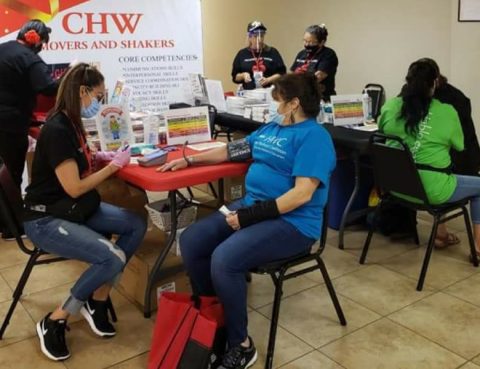(FG Trade Latin/E+ via Getty Images) Lea en español Caregiving has been part of María Aranda’s life since she was a young girl, when her Puerto Rican grandmother and namesake lived with her family in the Los Angeles area. She remembers watching her mother and other family members care for her grandmother for years before…
(tab1962/iStock via Getty Images) Insomnia and stressful life events may explain why some women develop an irregular heart rhythm after menopause, new research finds. Psychosocial factors are “the missing piece to the puzzle” that can lead to atrial fibrillation, or AFib, the study’s lead author said. The findings were published Wednesday in the Journal of…
(MangoStar_Studio/iStock via Getty Images) Lea en español For more than half a century, scientists have debated the role of dietary cholesterol in a healthy diet. Because it was often associated with saturated fat, limiting dietary cholesterol – especially by restricting egg consumption – seemed to benefit heart-health efforts. More recently, accumulating data has caused researchers…
Promotores, or community health workers in Spanish, like these in Texas help the Latino community with some of their health care needs. (Photo courtesy of Mercedes Cruz-Ruiz) Lea en español Patricia Guevara enjoys doing things with her 5-year-old daughter, Miranda, especially painting and drawing and taking an occasional walk in the park. After a promotora,…
(Prostock-Studio/iStock via Getty Images) COVID-19 may increase the risk of developing high blood pressure, even more so than the flu, new research suggests. The analysis, published Monday in the American Heart Association journal Hypertension, may be the first to examine the development of and risk factors for high blood pressure in people infected with COVID-19…
(pilli/iStock via Getty Images) Lea en español Researchers have long understood that people with chronic health conditions, such as heart disease, are at increased risk for depression. The same may be true for people with COVID-19 symptoms that linger for months and sometimes years. An estimated 28% of U.S. adults who have had acute COVID-19…
(bit245/iStock via Getty Images) If you get cross-eyed thinking about carbohydrates, that’s understandable. They can be, quite literally, both simple and complex. They abound in snacks that nobody would call healthy but also appear in foods considered essential to good health. “It gets a little confusing,” said Andrew Odegaard, associate professor of epidemiology and biostatistics…
(andreswd/E+ via Getty Images) Black people who have had strokes have more cardiovascular risk factors than people who are not Black, but those risks may be reduced through intensive interventions, new research suggests. The study, published Thursday in the American Heart Association journal Stroke, found that Black adults who had strokes due to severe blockages…








